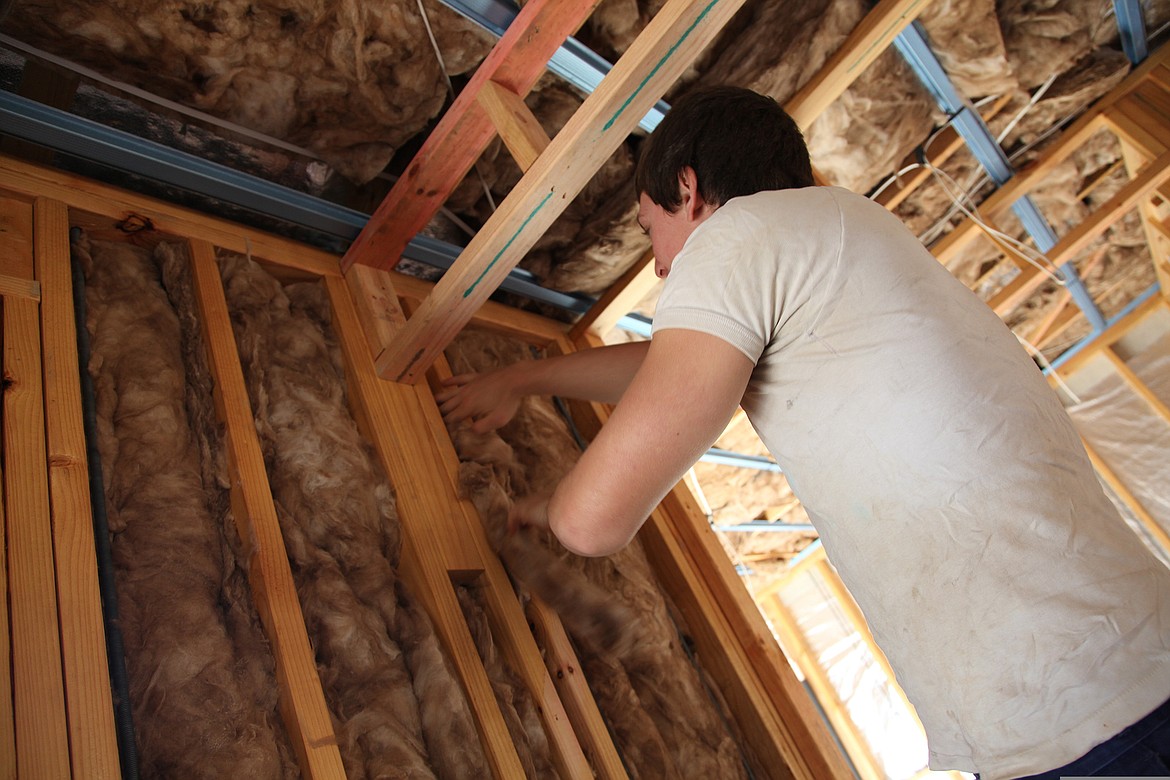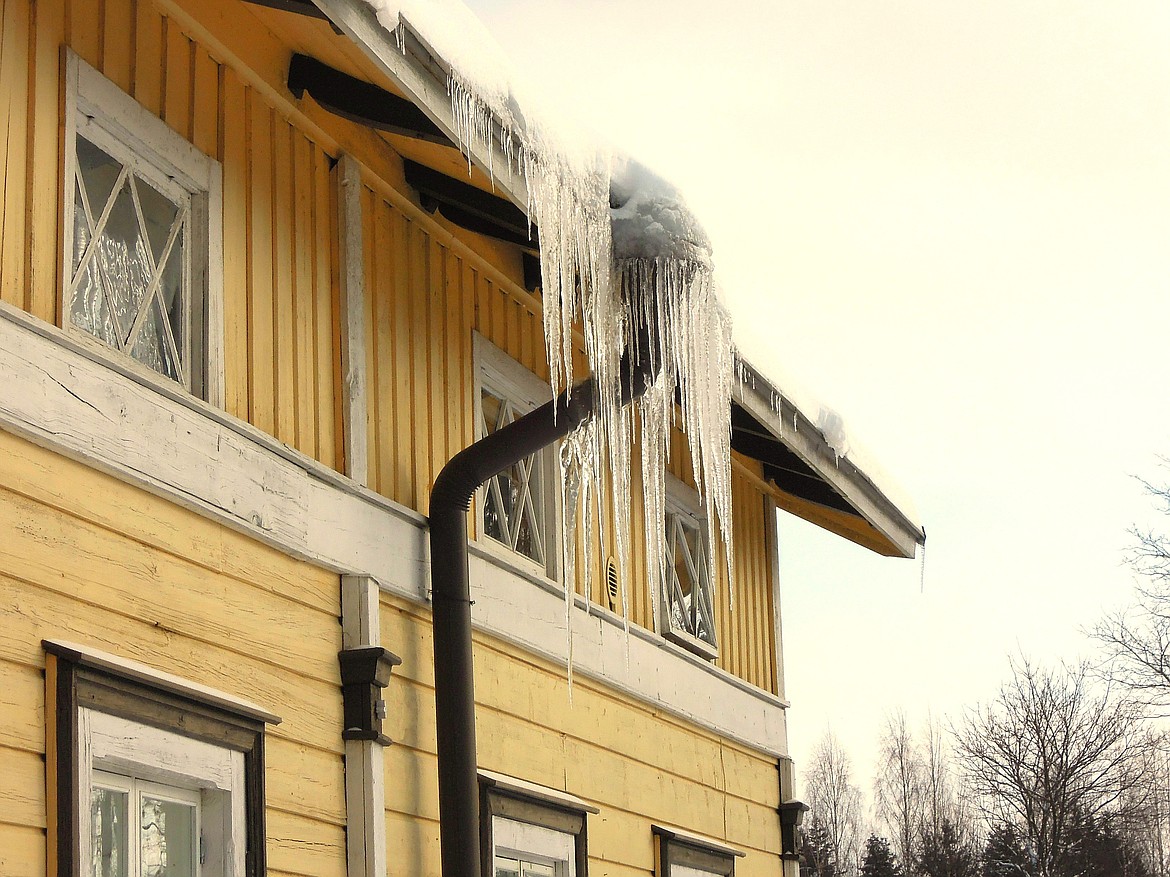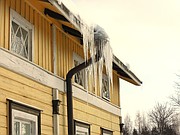Keeping Warm
COLUMBIA BASIN — As perceptive observers may have noticed, the weather has recently changed. Here in the Basin, we’ve had our brief annual visit from fall and winter is now pounding at our door like a battering ram. Which means it’s time to seal up, wrap up and warm up the house.
“One of the things obviously, when you're coming into the winter, is that people at home should definitely be checking all their air filters,” said Logan Hickle, a spokesman for the Better Business Bureau. “They should be checking their windows and their doors, making sure all the correct sealants are in place, if anything's cracking, getting that replaced, because that can one help keep you warm and to save on energy bills.”
“When you're worried about winterization, the biggest issues are the pipes, and then things like insulation,” said McLain Fanning, general manager of Ace Hardware in Royal City. “Of course, it's nice to have a good space heater. But that's not worth all that much if you have all these cracks in your home, if there's any spaces where you can see daylight through like a door frame or a window, or sometimes people will put a hole in their garage to run an air compressor hose into their shop or something. If there's any place where air can freely travel, basically that makes it so you're heating the world instead of just your home.”
There are some things homeowners can do that don’t take a lot of time or skill but can pay huge dividends in heating costs and comfort. Windows are a major weak point, Fanning said, because they’re thin. He recommended an insulation kit that comes with a sheet of plastic and an adhesive strip that runs along the window frame.
“You run the plastic over (the window) and then use a hair dryer, and it shrinks like cling wrap. And that creates a barrier so that the cold air outside doesn't affect the temperature of your home quite so much. It's all one solid kit; they're pretty readily available. They're extremely handy and make a big difference.”
Doors are another weak point that can be remedied in 10 or 15 minutes, Fanning said.
“You can put thresholds underneath your doors, so the air can't freely flow,” he said. “They just slide on. Sometimes they'll have an adhesive strip or some sort of clip system. And that makes it so the air doesn't freely flow around your door.”
Another 10- to 15-minute job that can improve heat retention, Fanning said, is to go around the house with a can of expanding foam and look for any cracks or openings. There are several brands of the stuff available, he said, and it’s very versatile.
“It is designed for filling any cracks, like in window frames, door frames, even on the side of your home,” he explained. “You spray it in and it expands out and then it hardens. Then you just cut off any extruding foam and it's on the side of your house.” It can even be painted to match, he added.
And then there’s the pipes. Everybody has heard of household pipes freezing solid during the winter, and maybe even lived through it themselves. It’s something nobody wants to have happen twice.
“Oh, that can be a massive problem,” Fanning said. “Because if you have your sprinkler system for water, and everything freezes, then you're pretty much out of luck. You're gonna have pipes burst. So with sprinkler systems, it really just depends on how it's set up. Some of them are set to have a gravity-fed drain at the lowest point in the yard. And generally, they can just open it up and it'll flow out. But some people's lawns are not set to be gravity-drained. And if that's the case, usually what you do is you have an air compressor, and you use that to pump the water out.”
Fanning also strongly recommended covering exterior spigots with insulated caps.
If your home needs more than just a couple of simple fixes, or if you’re not able to carry them out, then it’s time to bring in a professional. It’s important to plan ahead for that, Hickle said, because so many of the more reputable professionals get booked up very quickly.
“Always look for a reputable company before the season hits,” he said. “Before that winter storm hits, before that heat wave comes, try to find a list of companies in your area that are reputable, so you have it at the ready. When something does happen at the last minute, you want to try to get it fixed as fast as possible. You're going to contract with the first person you speak with, most likely, because you need it fixed. So we encourage you to have a list of reputable businesses in the area already vetted, if you will, (and have) already done your background research. So when you make that first call, you know it's to a reputable company and you're not just going off of an advertisement.”
It’s important to make sure the contractor you call is properly licensed and insured, Hickle said. The Washington State Department of Labor and Industries has an online database of licensed professionals consumers can check.
The people to stay away from, Hickle said, are what he called “storm chasers.”
“These are individuals that come around immediately following a storm ... and try to solicit individuals to contract with them right on the spot. Maybe during the winter when the driveways are deteriorating faster, and they need a driveway replacement, or they need windows replaced, whatever it is and they want (the homeowner) to contract with them right then and there, sign the contract. Typically, you see these high pressure sales tactics, like they’ll give you 10% or 20% off. Or they say they'll give you an extended warranty period, if you sign right now.”
“Signing right there and now is typically not a good thing for you as the consumer,” he continued, “because you don't actually know if there's a warranty in place to begin with, or if they're properly licensed, if they have a bad track record. And even if there's a warranty in place, you still can't take just their word for it. So we highly encourage people to avoid storm chasers. If someone comes to the door knocking, feel free to listen to them and take their information. But please do not give in to these high pressure sales tactics.”
When it comes to the cold season, like anything else, the quick solution isn’t necessarily the best, Fanning said.
“One thing that people do with winterizing is they'll buy a space heater or something like that,” he said. “And they'll expect that to immediately solve the problem. A space heater is, of course, a good place to start, and they can be really effective. But you want to have some sort of understanding of how much space you're trying to heat with that heater, relative to how many BTUs it puts out. Then insulation is a big factor, because if you have all those gaps and cracks, the best heater in the world isn't going to do much for you.”
Joel Martin can be reached via email at jmartin@columbiabasinherald.com.





